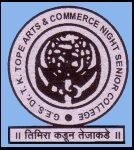Transcendentalism
Transcendentalism wasn’t started by a single individual, but rather it emerged as a movement in the 1830s in the United States, particularly in the New England area. It was an intellectual response to the societal and cultural changes of the time, especially dissatisfaction with established religious and political institutions.
However, certain key figures can be identified as the catalysts or central figures of the movement:
- Ralph Waldo Emerson: Often considered the most influential figure in Transcendentalism, Emerson’s writings, especially his essay “Nature” published in 1836, were foundational to the movement. His emphasis on individual intuition, the divine in nature, and self-reliance were central tenets of Transcendentalism.
- Henry David Thoreau: A protégé of Emerson, Thoreau is another prominent figure. His experiment in simple living at Walden Pond and his essay “Civil Disobedience” reflected and shaped Transcendentalist ideas.
- Margaret Fuller: An intellectual, critic, and women’s rights advocate, Fuller was actively involved in Transcendentalist circles. Her work “Woman in the Nineteenth Century” is considered a significant feminist work, and she contributed to the movement’s ideas and spread.
- The Transcendental Club: This informal group, founded in the early 1830s, included Emerson, Fuller, and others like Bronson Alcott and Frederick Henry Hedge. They met regularly to discuss intellectual and philosophical ideas, helping to shape and define Transcendentalist thought.
- The Dial: The publication of this journal, edited initially by Margaret Fuller and later by Emerson, provided a platform for Transcendentalist ideas. It featured writings by various authors associated with the movement.
The Transcendentalist movement was a complex convergence of ideas, reacting to Romanticism, Unitarianism, and the socio-political climate of the time. It was not the creation of a single individual but grew organically from a community of thinkers who shared common beliefs and interests.
![]()
